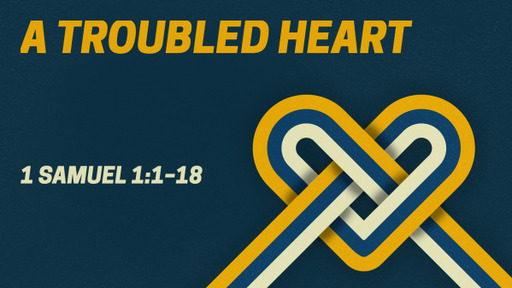A Troubled heart

Elkanah- husband of Hannah and Peninnah
Hannah-wife to Elkanah & mother to Samuel
Peninnah- wife to Elkanah, rival to Hannah
Eli-Priest of Israel father to Hophni & Phinehas
I. Family dynamics
Barren women seem to be God’s instruments in raising up key figures in the history of redemption, whether the promised seed (Isaac), the father of Israel (Jacob), saviors or preservers of Israel (Joseph, Samson, Samuel), or the forerunner of the great King (John the Baptist).
This matter goes beyond the particular situations of biblical barren women. We are facing one of the principles of Yahweh’s modus operandi. When his people are without strength, without resources, without hope, without human gimmicks—then he loves to stretch forth his hand from heaven. Once we see where God often begins we will understand how we may be encouraged.
II. Driven to Prayer
She addresses Yahweh of hosts, cosmic ruler, sovereign of every and all power, and assumes that the broken heart of a relatively obscure woman in the hill country of Ephraim matters to him.
Christians then should allow Hannah to be our schoolmistress to lead us to Christ, to instruct us in communion with God. Many Christians need to realize that Yahweh our God allows us to do this—to pour our griefs and sobs and perplexities at his feet. Our Lord can handle our tears; it won’t make him nervous or ill at ease if you unload your distress at his feet.
One of the main reasons we do not pray more is that we do not feel the need to pray. We think we can manage without God, and so our prayers end up a duty to perform, options in our busy day. Prayer was not a duty or an option for Hannah! She did not get up from the meal because she had realised that she had not had her quiet time that day. It was the cry of an anguished soul.
What creates great praying? A deep sense of our need and a deep sense of God’s care.